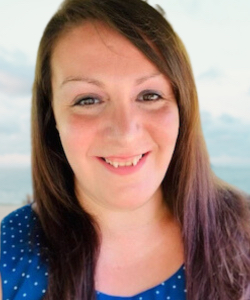Depression Counselling
When we lose a job, or experience the end of a relationship or the death of a loved one, it is natural to feel sad.
If we are mentally healthy, we accept and learn to live with such losses over time. When we are consistently sad, we may reach out for help.
Depression is more than just feeling sad. It is a complex mental health condition that can cast a long shadow over every aspect of life, affecting thoughts, feelings, behaviours, and even physical health. While nearly everyone experiences sadness or grief at some point, depression is characterized by persistent and intense feelings that can make daily functioning incredibly difficult.
It is a common misconception that depression is a sign of weakness or something you can simply “snap out of.” The reality is far more complex.

Counselling for Depression
Depression is an illness suffered by millions around the world. Globally, the World Health Organization (WHO) estimates that around 5% of adults suffer from depression.
According to 2022 Mental Health and Access to Care Survey (MHACS), “18.3% of Canadians aged 15 years and older met diagnostic criteria for a mood, anxiety, or substance use disorder in the 12 months before the survey.”
The good news is that counselling for depression has been known to be effective for many people. In more severe cases, with the advice of a doctor, treatment may include anti-depressants in addition to therapy.
A referral from a medical professional is not necessary for counselling. Anyone who is motivated to feel better, can call a qualified and trained counsellor of their choice and begin work right away.
Recognize the symptoms of Depression
Symptoms can vary from person to person but often include:
Persistent sadness, emptiness, or hopelessness.
One of the hallmark signs of depression is a consistent feeling of sadness or emptiness that lasts for weeks or longer. For example, you might find yourself feeling tearful for no apparent reason, or you may feel a significant sense of hopelessness about your future.
Loss of interest or pleasure in usual activities.
People with depression often lose interest or pleasure in activities they once enjoyed. This could be hobbies like painting, playing a musical instrument, or participating in sports. If you find that you no longer look forward to activities that used to bring you joy, it may be a sign of depression.
Changes in appetite or weight (loss or gain).
Depression often affects how individuals eat. Some may experience a decline in appetite leading to weight loss, while others may find comfort in food, resulting in weight gain. For example, you might notice that you’ve lost interest in meals or are eating excessively in an attempt to cope.
Sleep disturbances (insomnia or oversleeping).
Whether it’s insomnia (difficulty falling or staying asleep) or hypersomnia (sleeping too much), changes in sleep patterns are common symptoms. Perhaps you regularly stay up late due to racing thoughts or find yourself sleeping most of the day due to constant fatigue.
Fatigue or loss of energy.
Depression can lead to chronic fatigue, making you feel drained and unmotivated. Even small tasks can seem overwhelming. For instance, getting out of bed or showering can feel like monumental challenges.
Feelings of worthlessness or excessive guilt.
Individuals with depression frequently experience intense feelings of guilt or inadequacy. You may ruminate over past mistakes and feel undeserving of happiness or success, even when there’s evidence to the contrary.
Difficulty thinking, concentrating, or making decisions.
Depression can impair cognitive functions, making it hard to focus, make decisions, or remember details. You might find yourself staring at a document at work for hours without making any progress or struggling to follow conversations.
Slowed thinking, speaking, or body movements.
Some people experience restlessness, characterized by fidgeting or an inability to sit still, while others may appear physically slowed down. For example, your friends might notice that your movements have become sluggish, which can be a visible sign of your inner struggle.
Frequent thoughts of death or suicide.
In severe cases of depression, individuals may have recurrent thoughts about death or suicide. If you or someone you know is struggling with these thoughts, it’s essential to seek help immediately. Remember, there is support available, and you don’t have to face this alone.
Irritability or agitation, and unexplained physical problems like headaches or stomachaches, are also common symptoms. It’s important to note that children and teens might exhibit more irritability than sadness.
Who Is More Likely to Get Depression?
While depression can affect anyone, some groups are at a higher risk:
- Women: Are nearly twice as likely as men to be diagnosed with depression. This may be linked to hormonal fluctuations, particularly during puberty, pregnancy, and menopause, as well as societal factors.
- Young Adults: Data suggests higher rates of depression in younger age groups.
- Individuals with a Family History: Depression can run in families, indicating a possible genetic component.
- People with Chronic Illnesses: Conditions like diabetes, heart disease, and chronic pain are often associated with a higher risk of depression.
- Those with a History of Trauma or Abuse: Adverse life events significantly increase the likelihood of developing depression.
- Individuals with Other Mental Health Conditions: Depression frequently co-occurs with anxiety disorders, PTSD, and substance use disorders.

Is Counselling for Depression Effective?
Yes. Depression can be treated with counselling. Counsellors who trained to treat depression may use different therapeutic approaches. These include Cognitive Behavioural Therapy or CBT (read What is Cognitive Behavioural Therapy), Dialectical Behaviour Therapy (read about DBT here), mindfuless-based CBT, psychodynamic therapy, and others, to help depressed clients understand the root of their depression.
Through talking, depressed individuals are encouraged to express feelings that they may have repressed, or not have had a chance to be expressed fully.
Additionally, lifestyle changes that include exercise, a healthy diet, regular sleep, and stress management techniques can also support recovery.
Your Innova counsellor may introduce a variety of coping techniques, in their treatment plan for your depression.
They may also help you to draw up a plan with realistic goals that can bring about mental and emotional wellness. This plan may include identifying important relationships and what you could do to make healthy connections with others. It may also include reviewing relationships at work, how these may have affected you, and what you could do differently.
Treatment for depression may also include helping you to identify a support network of family and friends that could be there for you on a regular and reliable basis.
You may also be asked to include in your goals, a variety of other activities that would complement therapy. For example, having a regular fitness routine or joining a community, could help you feel much better about yourself.
Research has shown that counselling for depression helps to decrease its intensity, and reduce their recurrence. If you are feeling depressed, know that you do not have to suffer alone.
Find a counsellor today in whom you could trust, begin the road to recovery and regain control of your life.
Depression counselling is available in Coquitlam, Maple Ridge (read here about depression counselling in Maple Ridge), Cobble Hill, and Vancouver.
Depression Counsellors in Coquitlam
Depression Counsellors in Maple Ridge
Get Help for Depression Today
Call us today for a free 3-minute consultation. Call 604-484-2737 or book online here.















